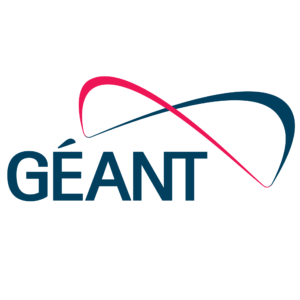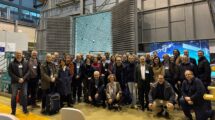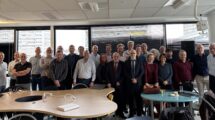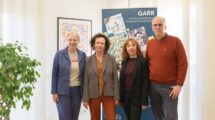It was so good to see so many old friends gathered together in Madrid to celebrate all things EOSC. There were a number of speakers and session leads from the community including Chris de Loof from Belnet chairing a session on Data Spaces and Emma Lazzeri from GARR who is co-ordinating the Skills4EOSC project. We heard from Jan Meijer (Sikt) on the progress of the EOSC task force for Financial Sustainability – additionally Kostas Koumantaros from GRNET on NI4OS and Roberto Sabatino from HEAnet on the monitoring of national open science activities. GÉANT’s own Olaf Verschoor presented on the excellent results of the OCRE framework.
Important topics such as EOSC partnership priorities, financial models for EOSC post 2027, interoperability, and Use cases were discussed and each session during the three busy days demonstrated how far EOSC has come since its inception. A particular highlight came on the Thursday during the “Unconference”; GÉANT and NRENs co-organised, along with the EOSC Association, a 2hr interactive session on EOSC Nodes with roundtable discussions. The outputs will be used by the EOSC Association for future work. This was the culmination of work carried out during the summer by a small GÉANT community working group which put together a community position paper on the subject which has been published during the Symposium week and also been submitted to the EOSC Association for consideration (GÉANT community position paper on the establishment of EOSC Nodes). In the final panel on Friday morning, our CEO, Erik Huizer, re-iterated a number of key messages from this paper including ‘no master node to rule them all’ sharing his experience of what worked (and what didn’t!) when building the internet in the closing plenary along with a simple mantra “we’ve got you covered” (for Network and Trust and Identity). If you want to get a better understanding on how Federated Identity Management has evolved over the last 20 years – we also published “20 years of Federated Identity Management: where are we now and how did we get here?“.
Key takeaways
- 2024 will be ‘the year of the design and initial deployment of the EOSC Federation’ (it will also be the year where initial decisions will be taken on EOSC governance post 2027)
- The EOSC EU node is not a master node, but a reference node
- A minimum set of requirements will have to be defined to enable an inclusive EOSC Federation
- The EOSC Federation will include multiple nodes, each country and thematic community will discuss the best set-up
- The countries will have a key role in the post-2027 decision-making process
- EOSC does not operate in isolation: initiatives like data spaces, Destination Earth and EDICs will offer potential opportunities for synergies and joint developments with EOSC
- The EOSC Future project will continue for an extra 6 months to ensure a smooth handover to the EOSC Procurement awardees
Overall it was great to see so many colleagues in person and to see how far EOSC has come. We look forward to the next EOSC Symposium in Berlin in 2024!
More on the EOSC Symposium 2023: https://symposium23.eoscfuture.eu/







